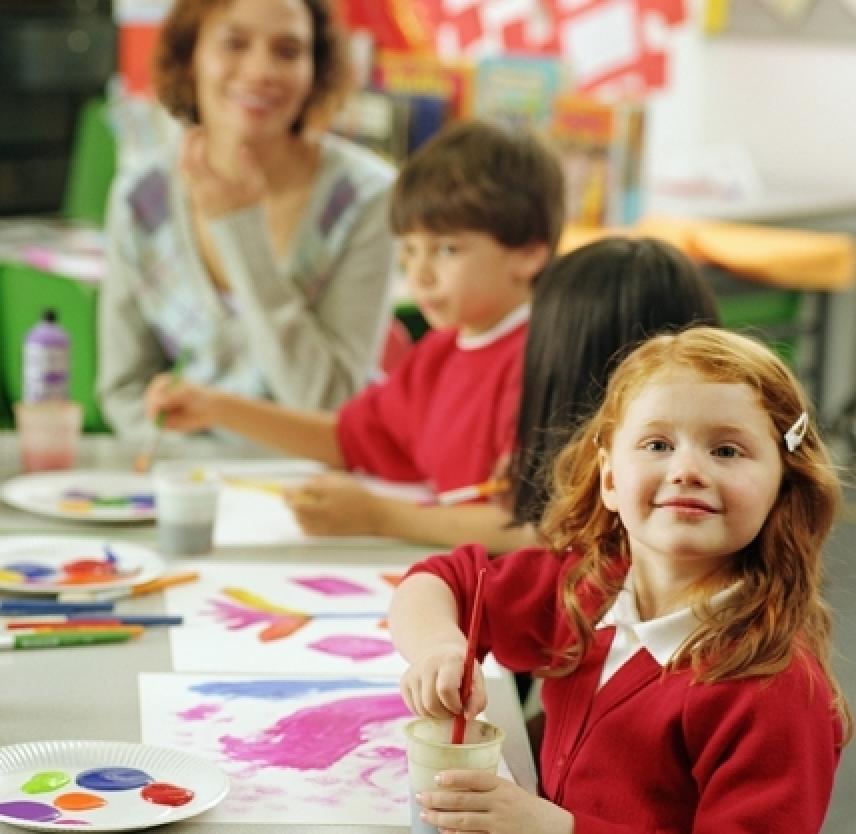
Children with weak social skills desire meaningful relationships, but lack the skills necessary to develop and nurture them. The adult task is to observe children as they work and play, identify problems, and teach, rehearse, structure, and praise socially acceptable words and actions.
Use everyday activities
- Social skills are better learned in small group settings than in large groups.
- Give verbal feedback about specific behavior (e.g., "I like the way you let John ahead of you in line.")
- Emphasize and reward manners and politeness.
- Practice and expect table manners. Make family dinners a priority in your weekly routine.
- Model appropriate language, treatment of others, and conflict management. Speak to your children courteously and expect them to use manners with others.
Change the environment
- Use peer buddies as mentors.
- Create play dates and structured social situations for your child (example: "invite a friend over from 3:00 to 5:00 to make cookies and watch a movie," instead of "have a friend over to play."
Teach new skills
- Teach your child to understand non-verbal messages by "reading" facial and voice clues, such as difference between "mad, stay-away-from-me faces" and "happy, come-play-with-me faces." Non-verbal signals are very complex, and understanding them will require specific skill building. Involvement in a social skills group is often helpful.
- Social skills are not learned by punishment of "bad" behavior. Desired social skills must be taught in order to develop. Pick one specific skill (rather than something global) to develop. For example, "practice a phone conversation" vs. "make more friends."
- Develop "tried and true" routines for everyday situations. For example, develop a plan of action for recess time. Stick to the routine and refine skills through rehearsal and practice. Provide constructive coaching and feedback.
See other BrainSTARS articles.
From BrainSTARS, Brain Injury: Strategies for Teams And Re-education for Students, © 2002 Jeanne Dise-Lewis, PhD. Used with permission. The manual is available in English and Spanish. For more information or to order copies, call 720.777.5470 or chris.moores@childrenscolorado.org. A short video on how to use the BrainSTARS manual is available at www.youtube.com/BrainSTARSprogram.

Comments (1)
Please remember, we are not able to give medical or legal advice. If you have medical concerns, please consult your doctor. All posted comments are the views and opinions of the poster only.
Mark replied on Permalink
I had a depressed skull fracture with subdural hematoma resulting in crainectomy operation in 1973. I was 12 and no clue of what was to come. When I say I was released at the time ...no planned rehabilitation because there was none. Went back to school totally unfit to navigate nor understand how damaged I was socially,emotionally and cognitively. 46 yrs later with multiple 10-12 more concussions, 12 x being tazered by police and added health issues. I have not had a a follow up Ct or MRI. I have to now fight for and waste time and money to get relief. I'm tired of fighting externally and internally. With a limited time left I hope ssa will provide the resources and accessibility to a level of care that will allow me to enjoy what I have left with my kids. I only wish org. like this was around then. Maybe my life would have been richer in enjoyment with others. A lot of regrets due to this trauma. Thanks for the space to vent.